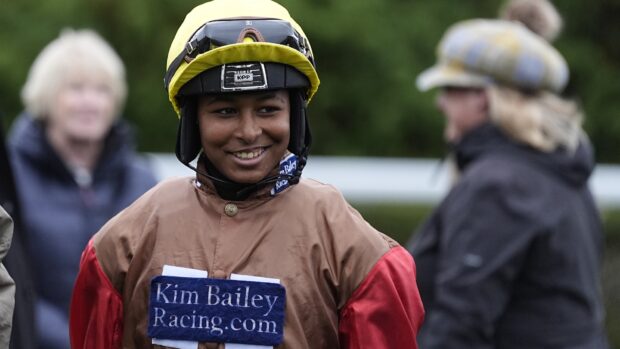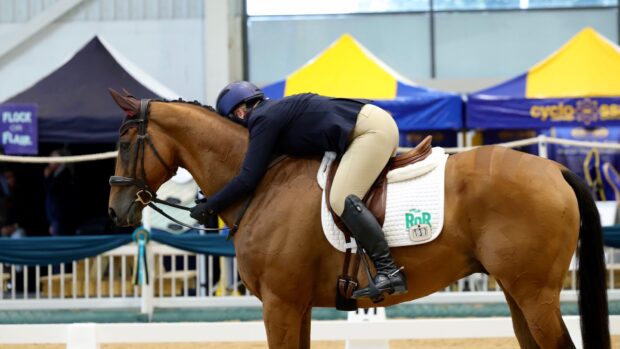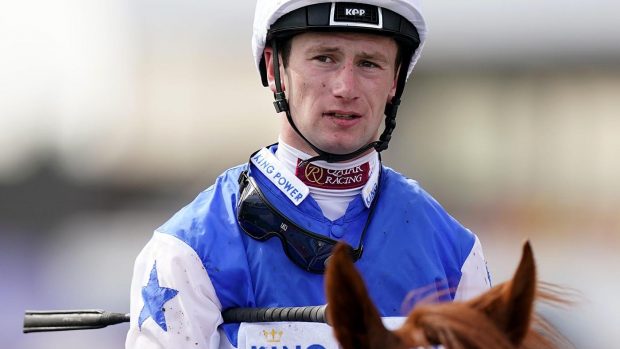AN “epidemic” of sexual harassment and a lack of ethnic diversity are two issues the industry must tackle to secure a sustainable future.
A host of experts spoke at the 2021 Racing Foundation conference on 30 September, which was titled, “Future-proofing the racing industry: protecting people and the planet”.
British Horseracing Authority CEO Julie Harrington had pointed out that although horse welfare is always the top priority, this has been the focus of the independently chaired Horse Welfare Board, set up in 2020, so this conference concentrated on other areas.
Eleanor Boden gave a talk titled, “Where did all the girls go?” She explained she had intended to study teaching and education in racing for her PhD, but that it “became quite gendered”.
“We wanted to know why young people, especially females, were coming into education and training but not continuing,” Dr Boden said. She added that she spoke to 87% female jockeys, who came into the industry with aspirations.
Issues raised included acceptance of terms such as “a lad’s ride”, to safety issues – “Have you tried to get your boobs into a body protector?” – and bosses’ comments such as, “Your arse is too big.”
“Period shame wasn’t considered but some women are on contraceptives, to avoid embarrassment or weight fluctuations,” Dr Boden said.
She added that maternity and pregnancy were big issues, as could be hyper-femininity, with certain expectations to the point “some women were warned not to be bikes”.
A major issue though was sexual harassment. Dr Boden found women were told their place was in the kitchen rather than on the yard, and offered rides in exchange for sexual favours. She had to submit her study with a language and content warning.
“We’re in a sexual harassment epidemic,” she said. “It’s a societal problem and racing can’t be arrogant enough to think it’s not happening in our spaces. Racing has a massive opportunity to get this right and lead.”
Dr Boden said what is often brushed off as “just banter” is harassment or bullying, but many women said they did not report it as it was “not worth the hassle”, or they felt their jobs would be at risk. She said there is an acceptance of inappropriate comments, that it is OK to comment on a female body and that “part of the racing attitude means it goes unchallenged”.
“Gender stereotypes are widely accepted and unchallenged, and those who succeed are ‘those who learn to play the game’, but women can never win,” she said.
“This is happening and it needs sorting. It’s not going away, it’s getting worse.”
Dr Boden proposed creating a toolkit to let people know their responsibilities and an e-learning module has been written and will soon go live. Employers need to know their additional responsibilities and there should be a clear and easy way to report any concerns.
“It’s really important we all know safeguarding is everyone’s responsibility,” she said. “We should challenge behaviour and language and create awareness. If something doesn’t feel right, it probably isn’t and if you stop the behaviour now, they won’t do it to someone else. If we get this right, everyone will benefit.”
Introducing the ethnicity in racing discussion panel, conference host Oli Bell, of ITV Racing, said increasing diversity in the industry is “hugely important and something we as a sport haven’t done enough about”.
Susannah Gill, chair of the diversity in racing steering group, said she was “sitting here pretty much as a posh white person”, but had long been the only woman in her areas of work, which led her into her efforts to increase diversity.
She told a story of a mayor who wanted his town’s fountain to run with milk on his birthday. Every resident was meant to empty in a jug of milk the night before, but on the day, the fountain ran with water.
“People thought that if everyone else put their milk in, no one would notice, but everyone had thought that,” she said. “And when it comes to ethnic diversity, I think that’s what happens; everyone thinks someone else will confront it, but they’re not. It’s a conversation we should all have.”
Ms Gill said everyone can help. If they work for an organisation that has signed up to the industry commitment on diversity and inclusion, they can contribute to its work in the area, and if not, they can try to work towards a sign-up. A webinar titled “Let’s talk about race” is planned for 10 November.
Sky Sports Racing researcher Callum Helliwell explained that he had ridden since childhood, but his dreams of being a jockey were “shattered” when he was told he was too tall. After a journalism degree, a course in Newmarket and working with racehorses in New Zealand, he took part in Sky documentary The Uncomfortable Race this spring, which led to his current job.
Mr Helliwell said it is crucial the industry attracts more fans and participants from all races, classes and backgrounds.
“Put yourself in someone else’s shoes and think about what it must be like from someone from a diverse background on a racecourse,” he said. “At Cheltenham, you walk into a sea of tweed, with white people under it, and if you’re not white and wearing tweed, you feel uncomfortable, as you feel you stick out. You find yourself wearing tweed and talking a different way, but the one thing I can’t change is my skin colour. You have to feel you’re accepted.”
Mr Helliwell said people from diverse communities will not return to the races if they feel uncomfortable and that everyone can help. He likened it to men taking on women’s comments about feeling unsafe in public after Sarah Everard’s murder, and what they could do to allay those fears.
“That’s the way to attract people from diverse backgrounds into the sport, we’ve got to make sure they want to come back,” he said, adding that one example is the creation of alcohol- and gambling-free “quiet zones” at racecourses for Muslims who do not drink or gamble.
Ashleigh Wicheard, assistant travelling head person for Neil Mulholland Racing, has previously told H&H she was often the only Black person in the paddock.
At the conference, she said she is passionate about boosting diversity and wants to concentrate on positives.
“My main message is that I’m not just trying to promote diversity, but inclusion for everyone,” she said, adding that building on the momentum created in 2019 by Muslim jockey Khadijah Mellah winning the Magnolia Cup at Goodwood is key.
Mr Helliwell added: “We need to put our foot down and make change. We can talk about it as much as we want, but we have to do more.”
You might also be interested in:

Progress made on ‘essential’ horse welfare projects by the racing industry

Whole life care for all racehorses is key for sport’s future *H&H Plus*

‘Change is coming’ to improve diversity in equestrianism
‘Some people might feel uncomfortable, as they think pro-Black means anti-white, but it doesn’t’

Climate change: exotic disease and horse and human welfare issues

Subscribe to Horse & Hound magazine today – and enjoy unlimited website access all year round
Horse & Hound magazine, out every Thursday, is packed with all the latest news and reports, as well as interviews, specials, nostalgia, vet and training advice. Find how you can enjoy the magazine delivered to your door every week, plus options to upgrade your subscription to access our online service that brings you breaking news and reports as well as other benefits.




